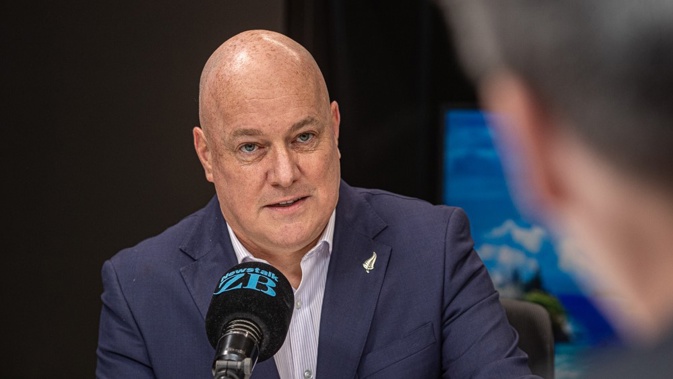
Prime Minister Christopher Luxon is speaking to Newstalk ZB’s Mike Hosking this morning after the Government announced an “overhaul” of the Education Review Office’s reporting on schools as part of an effort to lift school standards in maths.
Listen live: PM speaks to Mike Hosking at 7.35am
Schools that need extra help will face intervention from the Ministry of Education “earlier and more often” than currently according to Education Minister Erica Stanford.
Stanford announced the change today as part of a blitz of policy announcements, begun at the weekend, aimed to lift maths achievement.
“The Ministry of Education will intervene earlier and more often in schools which need extra support. The ministry will sharpen its approach to intervening in schools when student achievement is at risk, redirecting and targeting resources to schools with inadequate student achievement,” Stanford said.
“There will be an overhaul of the Education Review Office’s reporting, so it is focused on progress, achievement and assessment. There will also be clearer reporting to parents on what schools are getting right and what they aren’t,” she said.
Over the weekend, Stanford announced a suite of curriculum and workforce changes to lift maths performance. These include introducing a new Years 0-8 maths curriculum a year early, from Term 1 2025, with resources available to support teachers. She said the Teaching Council had agreed to lift maths entry requirements for new teachers and that $20 million had been set aside for professional development in structured maths for teachers.
Stanford said data on performance had previously been hidden from parents. She promised clearer reporting for parents.
Labour Leader Chris Hipkins said he agreed with many of the changes, some of which were in train under Labour, including the curriculum change.
He said data on school performance was “still hidden” because the Government has not “published the data they are referring to”.
“Overall in this area, including in the literacy space, there are only a few things they [the Government] are doing things slightly differently... broadly, the direction of travel is the same,” Hipkins said.
“Overall, the issues around numeracy are quite complex and longstanding. We’re not talking 10 years, we’re talking 20 or 30 years in the making,” he said.
New reporting from the Curriculum Insights and Progress Study published on Monday showed that in maths, just 22% of students at Year 8 were meeting curriculum expectations.
This figure was 28% at Year 6, and 20% at Year 3. Curriculum Insights is an update on the National Monitoring Study of Student Achievement (NMSSA). It assessed a nationally representative sample of students at Years 3, 6 and 8 from English-medium state and state-integrated schools in reading and maths.
While these figures are concerning the organisation that collates the study said that the Curriculum Insights and Progress Study as well as NMSSA “indicates that at Year 8, there has been no statistically significant change in mathematics achievement scores since at least 2013. On average, students scored about the same in 2013, 2018, 2022, and 2023″.
One of the study leads, Dr Charles Darr said “what we’re seeing in mathematics is a change in curriculum and a new benchmarking process rather than a change in achievement”.
“We’ve been tracking student achievement in mathematics at Year 8 for more than 10 years, and in that time, there has been no evidence for improvement or decline. We do have a new draft curriculum however, and the provisional benchmarking exercise we carried out indicates it requires a higher level of proficiency than the 2007 curriculum,” Darr said.
Thomas Coughlan is deputy political editor and covers politics from Parliament. He has worked for the Herald since 2021 and has worked in the Press Gallery since 2018.
Take your Radio, Podcasts and Music with you









